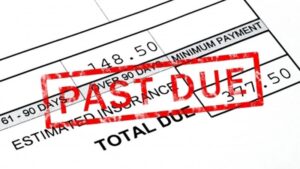Why statutory demands and petitions are essential

It can be argued that by restricting the filing of statutory demands and winding up petitions for Covid-19-realted debts, the Government has targeted all industry sectors with a blunt instrument.
Covid-19 did not adversely affect every business in Britain. Indeed, many continued to operate throughout the lockdown period, and some of them thrived.
We need to be careful because any business can avoid paying debts simply by claiming to have been affected by the pandemic, which is not easy to disprove.
The restrictions on statutory demands and winding-up petitions end on 30 September. This should provide creditors with more than enough time to organise their finances.
However, Parliament has the right to extend this provision of the new Corporate Insolvency and Governance Act. This would be an obvious mistake and only encourage businesses to stop paying each other, which would be disastrous.
Greater burden on taxpayers
Any additional strain on already fragile economy would surely lead to an increase in company collapses and unemployment. In turn, this would place a greater burden on the Exchequer, and ultimately taxpayers.
There is a ripple effect when a company goes bust, so the primary objective is to stop them from collapsing. Unemployment fractures households because parents can no longer afford necessities and other things for their children.
Additionally, the small businesses that rely on that household suffer too. There is a perfect storm brewing and it is just a matter of time before small businesses start going under.
While there is logic in the Government’s decision to limit the enforcement of statutory demands and winding-up petitions, the danger is in leaving the restriction in place for too long, which would be counterproductive.
Debtor Alert: Theodore Global Ltd
Theodore Global Ltd: A Company That Fails to Pay Its Staff and Trades While Insolvent If you’re thinking about working with, or for Theodore Global…
Read MoreIrene MacKenzie- The Gatekeeper of Silence
Irene MacKenzie and the Web Around William Jackson In the shadows of the alternative investment world, where buzzwords are abundant but redemptions are not, one…
Read MoreThe Grim Truth for Loan Note Holders -79th Luxury Living Six Ltd (LL6)
No assets or safeguards. No clear path to recovery. If you’re one of the many investors who entrusted your money to The 79th Group’s loan…
Read MoreOverdrawn Directors’ Loan Accounts: How to Avoid Trouble
Many company directors borrow money from their businesses through what’s known as a director’s loan account (DLA). In principle, there’s nothing wrong with this, so…
Read More



